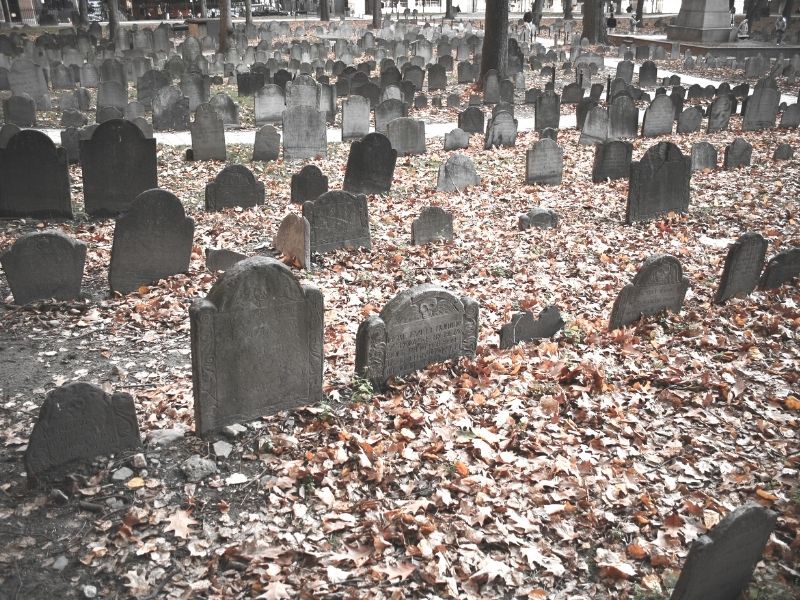
The MOST Important Question in Your Cemetery Research
Cemetery research is vital to findinginformation on your ancestors. Make sure you ask the MOST important question to not miss any family clues.
You’ve finally found where your ancestor is buried. It’s time for the genealogy happy dance!
You could find yourself standing in the middle of a cornfield. You could find yourself in the middle of a church cemetery. Or you find yourself in the middle of a large city cemetery. You have found your ancestors grave site, you have transcribed all the information from that tombstone, you’ve taken all the photographs that you need to take. But your work is not done yet.
Your Cemetery Research Question!
Make sure before you leave that cemetery and before you finish your day of research that you have asked yourself, the most important question for your family history research that day.
Step back.
Look around you.
And ask, “Why?”.
Why is your ancestor buried in this particular grave site in this particular cemetery? And why is the cemetery here?
“Why?” is the most important question that you can ask yourself when you are doing cemetery research.
And why is that? 😉
Why Ask “Why?” in Your Cemetery Research?
While the location of your ancestor’s grave may seem random, it was not. There is a reason that your ancestor was buried in that location. It is your job as a genealogy researcher and family historian to find out why.
What does the answer to these questions these “why” questions have to do with finding your ancestors?
Understanding more about the location of your ancestor was buried, will provide you new avenues of research. (As genealogy researchers trying to extend that ancestor line back, sometimes we need new clues.) We don’t want to miss those clues simply because we fail to understand our ancestors life and death.
Let me walk you through what asking that why? question in the cemetery actually looks like. If you find yourself standing at your great ancestor’s gravesite in your in the middle of a church cemetery, then you might want to consider that your ancestor was a church member, or the family were members of that church. You then want to add church records to your research plan.
But take your “why” question one step further.
In that church cemetery, look around again. Do any of those grave sites actually predate the existence of the church? If so, consider that the church cemetery may have started out as a different type of cemetery.
In the case of my great-great-great grandfather, it turned out when I found him in the church cemetery, I missed the fact up front, that his gravesite predated the church.
It turns out he was buried there when that cemetery was simply a family cemetery. This was the land that his wife’s family owned and where their family cemetery was situated. The cemetery was part of the land the family donated to the church. The church cemetery grew up around the family cemetery.
By understanding that my ancestor was buried in what was originally a family cemetery, I went looking for deed records!
Did you find your ancestor’s burial site in a large city or town cemetery? Now it’s possible that the reason they are there is because it was simply the normal tradition of what people did for that area.
Consider their location within that cemetery. Why are they in that particular location? Is it a family plot? If so, you’re likely to find other related ancestors there as well.
Are they in the military section of that particular cemetery? Then you want to add military records to your genealogy research plan as well?
Did you find your ancestors grave in a rural wooded area or in the middle of a tobacco field, it’s a really good chance that that was a family cemetery and that that was perhaps the land that the family owned. So if that’s the case, then definitely you want to add the deed records genealogy research plan .
When you answer that “Why?”question, you will be able to start adding to your research plan. You can add deed records, church records, and military records. You can find clues to provide you with new avenues of research for your genealogy research plan to help you build out your family tree and extend it further back.
Keep Learning….
If you want to learn more about researching your ancestors in the cemetery, watch this video the seven steps to successful genealogy research in the cemetery. You’re free to make sure you’re getting the most out of your cemetery research and not missing out on important clues
Other Posts of Interest:








